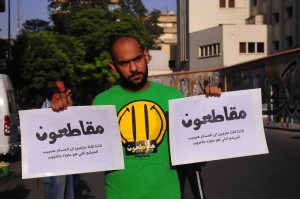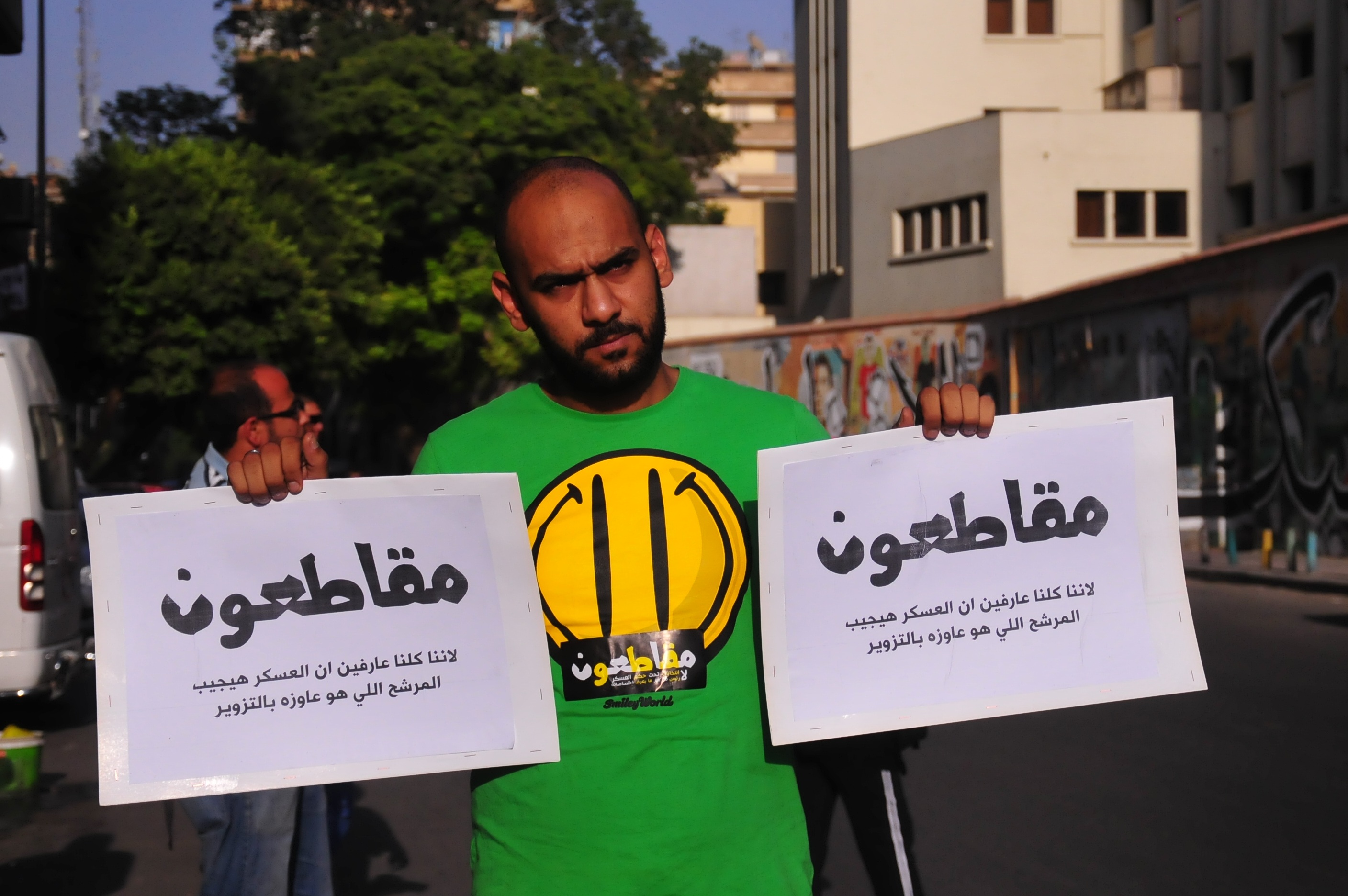
By all estimates, turnout was low in the runoff round of voting in the country’s first post-Mubarak presidential elections. By the time polling stations closed on the first day, most districts across Egypt were reporting a turnout between 15 and 20 percent.
Many voters viewed the results of the first round, which brought Mubarak’s last prime minister, Ahmed Shafiq, head to head with Mohamed Morsi, the Muslim Brotherhood’s candidate and president of the Freedom and Justice Party, as a throwback to the politics of “the regime vs. the Islamists.”
As millions of Egyptians flocked to voting booths all over the country, some to choose the man they deem fit to be president- or at least the lesser of two evils, others decided to reject the choices presented, in more than one way.
In one corner stand the boycotters (moqate’oon) movement, which called on Egyptians to boycott the election since before the first round. The boycotters say they reject the holding of elections under military rule since they reject the Supreme Council of Armed Forces’ rule of the country to begin with. “I am boycotting because I don’t recognize SCAF’s authority and I don’t want to contradict myself by protesting against them in the street then participating in their elections” said Shahira Abouellail, co-founder of the No to Military Trials for Civilians group and a prominent activist who is outspoken on boycotting the election.
“Voting recognizes their [SCAF’s] right to draw the map. The more we participate, the more legitimacy we give them,” she added.
She also says that SCAF created conditions that allow them to sway public opinion toward the candidate they prefer and that they have “monopolized all the tools that enable campaigning and made it impossible to have fair elections.”
For Abouellail, the only solution was to completely boycott the election and refuse to recognize the result. “This atmosphere they’ve created is not democratic, in democratic countries people don’t die in peaceful protests,” she said.
However, there is another camp of dissenters who choose to invalidate their votes rather than go for total boycott, representing another movement called, “nullifiers” (mubteloon). The aim of the nullifying movement is, like the boycott one, to show rejection of the current political situation. In fact, both movements have the same aims, they just differ on methods.
According to Mohamed Ghonim, a coordinator of the mubteloon, the aim of the movement is to show Egyptians that there is a third option and that they are not obliged to vote for someone they do not like. “The fact of the matter is that most people are voting for a candidate because they are afraid of the other one” he said.
Mubteloon view nullifying votes to be more effective than boycotting because there is no real way of measuring the amount of boycotters. Elections can have low turnout for many reasons other than active political boycott.
Nullified votes, they argue, are quantifiable as the Presidential Elections Committee is required to announce the number of invalid votes with the results. “Our votes will be counted and announced, both as a percentage and as a total number of votes,” Ghonim said.
He did say that both movements had the same goal and added that boycotting is a noble position to take if one had boycotted the first round of presidential elections, but if they did not then it would be hypocritical. “I voted in the [March constitutional amendments] referendum, the parliamentary elections and the first round of presidential elections. I have already given legitimacy to the process, boycotting now would just mean I am unhappy my candidate lost, and many of the people nullifying their votes are the same” he said.
Ghonim says that mubteloon will sit down with all political forces that rejected both candidates after elections and decide where they want to go from there. “We will definitely be forming the real and powerful opposition to the next president, whoever he is.”




